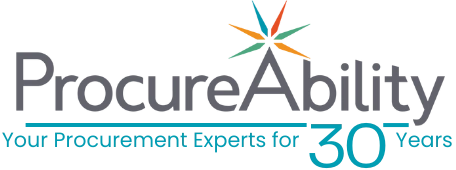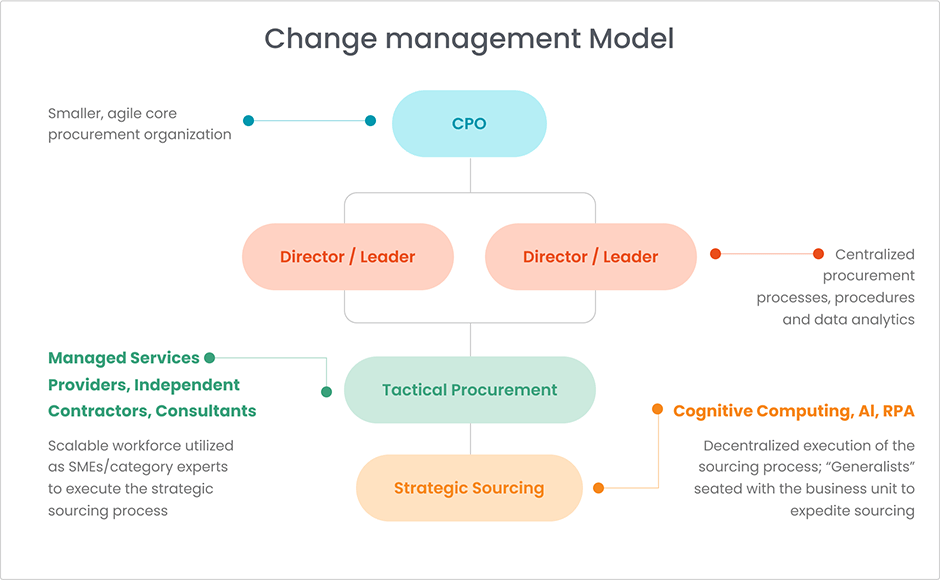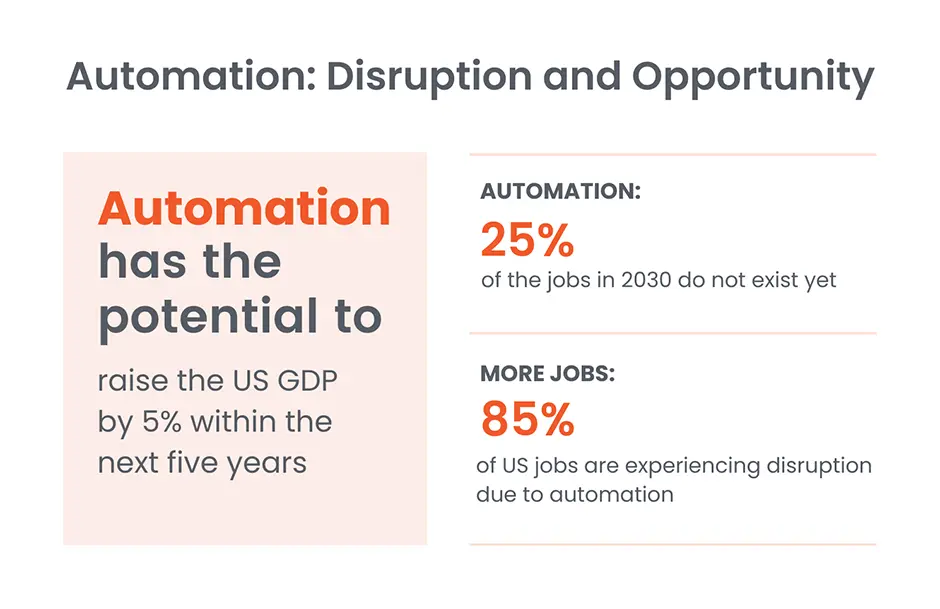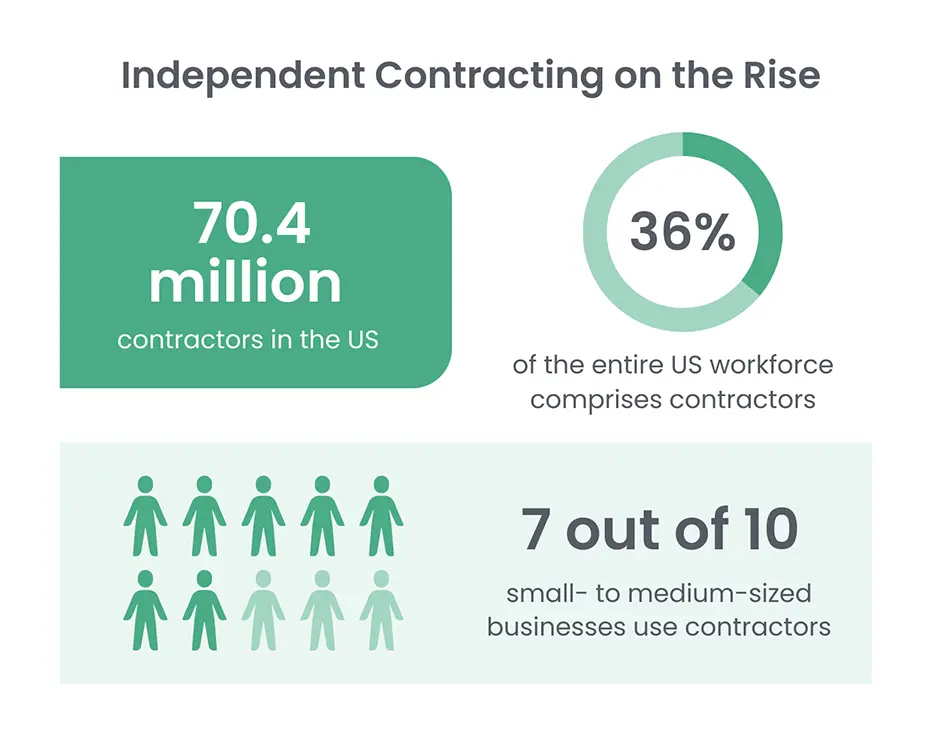During the formation of the ‘Bold Procurement Predictions for 2030′ Insights series, ProcureAbility closely examined how mature procurement teams are in adopting new practices and emerging trends. As a result, it quickly became clear that organizations vary widely in the processes and technologies they use. While some remain focused on core practices, others—a small group of innovators—are exploring new ways to leverage supply chain technology. Therefore, ProcureAbility concentrated its efforts at the very top of the pyramid: ideation.
In this Insights series, ProcureAbility highlights five emerging trends that procurement organizations should expect to move from the top of the pyramid to the bottom by 2030. These include advanced crowdsourcing, procurement technology acceleration, cognitive computing, hyper cybersecurity, and virtual organizational design. By understanding these trends early, teams can better prepare for their widespread adoption.
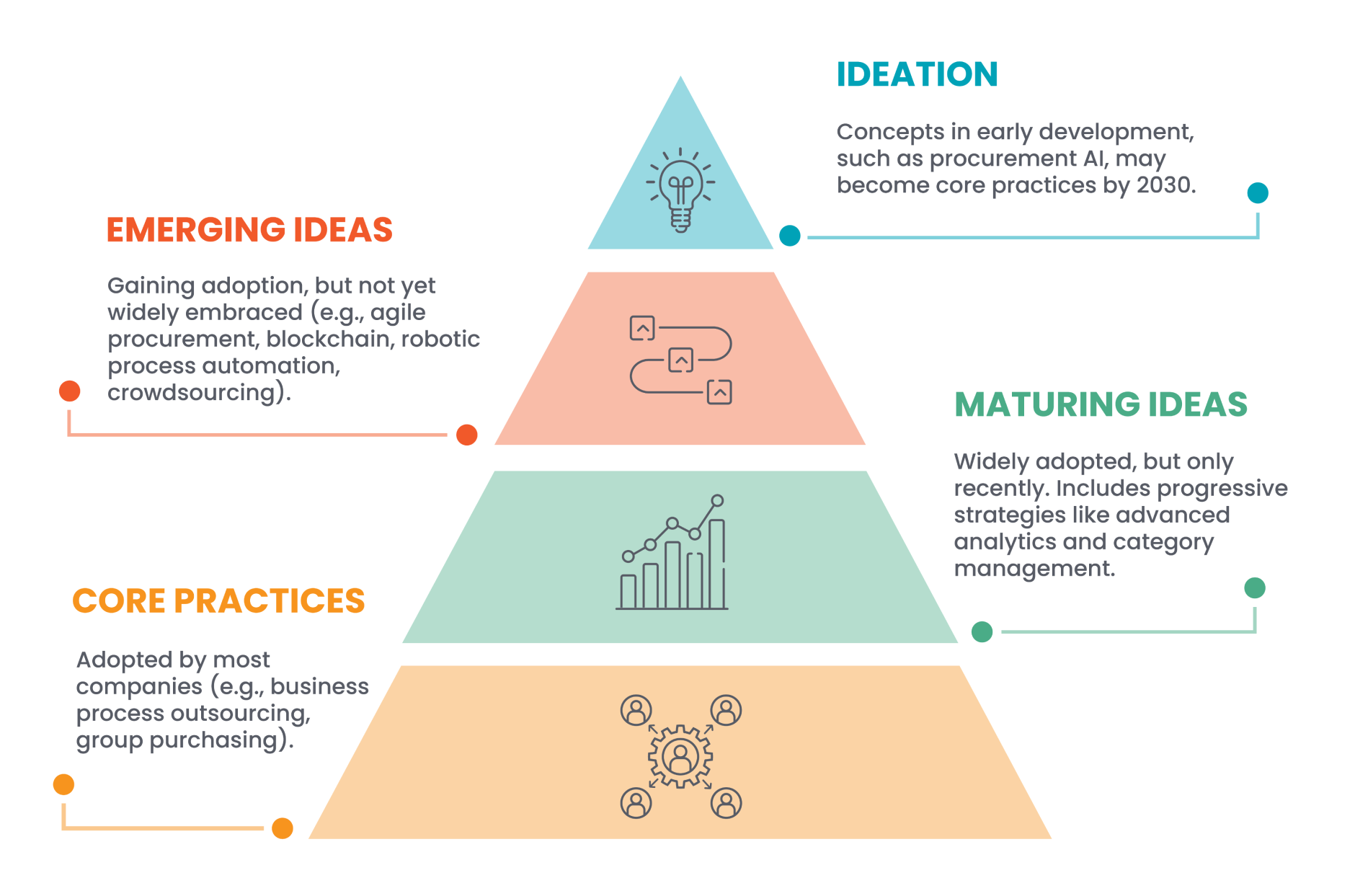
Before we examine our final bold prediction in this series, let us review where we have been. These are ProcureAbility’s Bold Procurement Predictions for 2030 to date:
Advanced crowdsourcing
By 2030, we expect at least half of all procurement activity will occur within the crowdsource domain and participation of smaller companies will increase by 70 percent. Crowdsourcing’s increased visibility will feed competitive pressures, driving prices down.
Procurement technology acceleration
Virtual delivery will replace site visits, presentations, and written proposals. 3D-printed prototypes will be standard operating procedure. We predict that virtual assistants will be available to order items from the corporate catalog with the same convenience we see from smart speakers today. By 2030, standard terms and conditions will be controlled and updated by machine learning, and AI will recommend negotiation tactics.
Cognitive computing
By 2030, thanks to cognitive computing, strategic sourcing will take no longer than two weeks. Nearly every aspect of sourcing will utilize some form of machine learning or robotic processing automation.
Hyper cybersecurity
ProcureAbility predicts that cybersecurity spend will increase by 30 percent and that monitoring and prevention services will become a top category. Firms will work with fewer suppliers who will need to meet rigid data security requirements.
These innovations underpin ProcureAbility’s final Bold Procurement Prediction for 2030: a widespread shift toward center-led procurement by the end of the decade. Although leading organizations have already been moving in this direction, we expect the model to evolve to a completely new level by 2030. Specifically, procurement organizations will feature a core business unit, while up to 90% of operational sourcing roles will be automated or outsourced to contractors.
Automation and Center-Led Procurement
Artificial intelligence and advanced automation will be key drivers in the shift toward center-led procurement. In fact, research suggests that by mid-decade, about one-third of all highly skilled work will be affected by intelligent machines or non-specialist personnel supported by cognitive computing. Moreover, ProcureAbility predicts that automation will complement human workforces rather than replace them. Far from the “machines will take our jobs” trope, automation in procurement will enhance cost savings, quality, and compliance. As a result, lead times, downtime, and service interruptions will drop significantly.
The Gig Economy and Center-Led Procurement
By 2030, core procurement organizations will be expected to centralize processes, manage data analytics, and drive business strategy. To support this shift, firms will rely on category experts and consultants to handle specialized tasks. In fact, this trend has been developing for years, with contingent, temporary, and contract labor expected to make up the majority of the workforce by 2027. Furthermore, since benefits account for roughly 32% of employee costs, organizations using contractors can achieve significant savings while gaining flexibility to scale up or down as business needs change.
What Now?
ProcureAbility recommends that procurement firms assess their organizations’ current designs and determine what changes will be required to build more responsive, adaptable sourcing teams. Develop a plan to optimize automation and restructure staff, seeding contracted generalists in the department as necessary. By the end of the decade, procurement organizations will be smaller and more agile, with a heavy focus on relationship building and business strategy.
2030 is Closer than You Think
1Gartner Maverick Research
2McKinsey Global Institute, Jobs lost, jobs gained: What the future of work will mean for jobs, skills, and wages, November 2017
3Robots and the Economy: The Role of Automation in Productivity Growth, December 2020
4Dell Technologies and Institute for the Future, Emerging Technologies’ Impact on Society & Work 2030
5LinkedIn Workforce Report, May 2018
6U.S. Bureau of Labor Statistics, 2020
7Statistica, July 2022
8Upwork, Freelance Forward 2021

